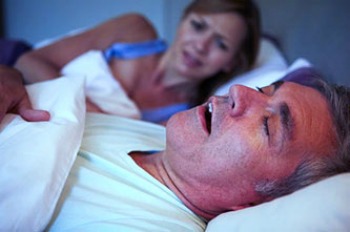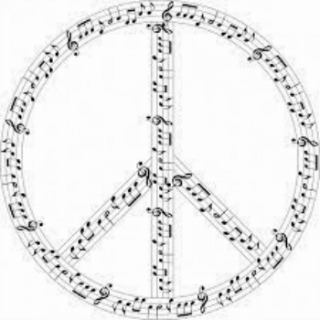We all turn to sleep to help us recharge for the next day. No matter what we do during the day, it is the only constant thing we all share once night falls. While our sleeping time and sleeping pattern vary, all human beings need sleep to rest and recuperate. Some don’t find any difficulty falling asleep once they hit the sack but others can stay up all night tossing and turning but sleep still seems to elude them.
 Aside from the common culprit that is technology that often keeps us wide awake at night, sleeping disorders can be blamed for our sleeplessness too. The most common sleeping disorders that plague mankind are insomnia and sleep apnea. They can deprive you of precious sleep despite your best efforts to drift off to slumber. While there really isn’t a known cure for insomnia, it can be easily addressed by some lifestyle changes. Meanwhile, sleep apnea is a medical condition that requires more urgent medical attention.
Aside from the common culprit that is technology that often keeps us wide awake at night, sleeping disorders can be blamed for our sleeplessness too. The most common sleeping disorders that plague mankind are insomnia and sleep apnea. They can deprive you of precious sleep despite your best efforts to drift off to slumber. While there really isn’t a known cure for insomnia, it can be easily addressed by some lifestyle changes. Meanwhile, sleep apnea is a medical condition that requires more urgent medical attention.
You may have already heard of sleep issues such as sleep apnea, narcolepsy and insomnia, but lesser known and more rare sleep disorders can also take a toll on a person’s health. In fact, there are more than 80 known sleep disorders interfering with Americans’ ability to get sufficient shuteye.
One thing all sleep issues have in common: They interfere with your ability to get optimal rest, which in turn affects your ability to work, play, and care for your family. They also may affect your sleeping partner’s or family’s rest too, depending on the condition.
In general, patients with sleep disorders have trouble sleeping at night and suffer from excessive sleepiness during the day.
Now we know that snoring is the main symptom of sleep apnea and it is not just an annoying sound we all don’t want to hear come bed time. You need to remember that snoring is indicative of this serious medical condition, so you don’t just lose precious sleep but your health suffers too when you snore.
"Snoring isn't dangerous, it's obnoxious and it hurts people's sleep patterns. But if you snore and stop breathing and it gets very quiet, that is dangerous. It's called obstructive sleep apnea," said Klein.
And getting yourself checked in a sleep clinic and undergo sleep tests is a great way to start treatment for this condition. You don’t just shrug it off because you never know how serious your sleep apnea may be.
So Fred was belted, measured, marked and hooked up to leads and monitors for a sleep study. It took longer to hook up the sensors than it did for him to doze off. Technicians watch carefully from a room nearby, measuring his foot movements, brain activity and the amount of work the stomach does to push air up through the nasal passages, versus the amount of air that actually escapes and enters. The deeper Fred moves into sleep, the more the activity on the monitors heats up. Techs are looking for respiratory events. Five events per hour where you actually stop breathing would be considered normal. When you get up to 15 times per hour, you are at risk for heart failure, strokes, cancer, sexual dysfunction, obesity, mood disorders, even sudden death -- and,according to that marital sleep study, relationship malfunction.
Turns out Fred has more than the drive-Mary-crazy-snores. He stops breathing as many as 18 times an hour.
His snoring was the alarm for the ticking time bomb that was his heart.
(Via: http://www.clickorlando.com/news/investigators/could-snoring-be-an-alarm-for-a-bigger-problem)
Always keep in mind that snoring can lead to the following conditions. It pays to know these things in advance rather than regret staying in the dark later on when you are diagnosed with not just sleep apnea but of heart failure or diabetes, for instance.
Obstructive sleep apnea (OSA) is a dangerous, chronic disease that keeps nearly 30 million American adults from restful sleep. OSA involves the repeated collapse of the upper airway during sleep, and it can cause grave consequences to your heart if left untreated. There are five key warning signs and risk factors for sleep apnea: snoring, choking or gasping during sleep, fatigue or daytime sleepiness, obesity (BMI of 30 or higher) and high blood pressure.
If untreated, this common and serious sleep disorder can be devastating to heart health. According to a report published in Sleep & Breathing, people with untreated, severe obstructive sleep apnea are more than two times more likely to die from heart disease. One easy way to remember the severity of sleep apnea is with an acronym: sleep apnea hurts HEARTS by increasing the risk of:
H – Heart failure
E – Elevated blood pressure
A – Atrial fibrillation
R – Resistant hypertension
T – Type 2 diabetes
S – Stroke
Get yourself checked if you constantly suffer from snoring. Not only do you end up sleep deprived and your partner too but it can put your life at serious risk if you develop these chronic deadly conditions that may lead to heart attack. Don’t let sleep apnea put a strain on your relationship and on your health because there are various anti-snoring gadgets that address snoring like an anti-snoring mouthpiece, mouthgard, etc. that are widely available in the market these days.
Technology also plays a major role in the treatment of sleep apnea and other sleep disorders. Although we often think of technology as something bad because it is one of the major distractions that deprive us of sleep, technology can also be used in a positive way, especially in the development of innovative technologies that can help manage or treat snoring and prevent the development of these known sleep apnea complications.
The following blog article Are You Sleep-Deprived Because Of Sleep Apnea? was first seen on https://www.newinfluencers.com/
source https://www.newinfluencers.com/are-you-sleep-deprived-because-of-sleep-apnea/



